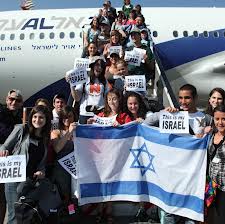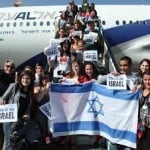On Aug. 26, 1947, three months before the partition resolution and nine months before the founding of the State of Israel, David Ben-Gurion said in a speech to the Zionist General Council: “We now face not simply acts of robbery and terrorism and attempts to disturb our work, but an attempt to uproot the yishuv and to destroy in one fell swoop the Zionist ‘threat’ by destroying the Jews of the Land of Israel. And this is within the realm of possibility if we do not recognize the danger in its entirety and do not prepare for it. The stated policy of the Arabs is: Israel as an Arab state where the Jews are nothing more than an eternal minority. They speak about this policy openly … but the unannounced plan that they are preparing is completely different. It is the plan of the now silent ‘leader.’ … He is plotting to put Arab armies into action for this purpose.”
He was, of course, referring to Jerusalem Grand Mufti Haj Amin al-Husseini. Ben-Gurion quoted Arab Liberation Army commander Fawzi al-Qawuqji, who said in an interview: “The conflict between the Jews and the Arabs is a total conflict. This is not a conflict between the Arabs and the Zionists, rather between the Arabs and the Jews, and the only solution is the complete annihilation of all the Jews, both in Palestine and in Arab countries.”
Ben-Gurion said that “what Qawuqji said openly, the leader of the Arabs in Israel [Husseini] says privately.” Based on this insight, Ben-Gurion presented the problematic power relationship between the Arab armies — whose invasion of Israel on the day of its establishment he accurately predicted — and the Jewish yishuv.
One could attribute Ben-Gurion’s statements to simple propaganda aimed at recruiting the public to the struggle. But the opposite is true. His remarks were made before the Zionist General Council specifically because it was a closed forum. Ben-Gurion did not say such things in public, in an effort to keep the nation’s spirit intact and to prevent demoralization.
“I will speak about these issues openly. Since this meeting is closed, we can speak clearly here,” he said.
Ben-Gurion was right. Indeed, the day after the U.N. General Assembly’s vote for partition, the Arabs in Israel attacked the Jewish yishuv in an effort to destroy it and to thwart the establishment of the state. And when their efforts failed and the establishment of the state was announced, all the Arab armies attacked that day, trying to drown the Jewish population in blood, only three years after the Holocaust. The Kfar Etzion massacre is testament to the fate that was expected for all Jews captured by the Arabs, and for the entire yishuv, if the Arabs had won.
When the Palestinians speak about the “Nakba” and present themselves as victims and the Jewish Independence War as “ethnic cleansing,” it’s important to remember these facts. There is no doubt that they experienced a disaster. Losing a war is a disaster. When it is an all-out war, the disaster of losing is experienced in kind. But they are 100 percent responsible for their disaster, and they have only themselves to blame, just as the Germans cannot go and complain to the countries that defeated them in World War II.
There is nothing more repugnant than the “Nakbaism” in our midst, among Jews and Israelis. This attitude can be clearly seen at the Nakba festivals that take place at Israeli universities, though its most extreme expression was the pilgrimage to Nesher made by Joint Arab List Knesset members to visit the grave of Izz ad-Din al-Qassam. Qassam preached the destruction of the Jewish yishuv in Israel and set up gangs that took part in the Arab revolt from 1936-1939. It is no coincidence that Hamas’ military wing — which carries out suicide bombings and rocket attacks against Israeli citizens — was named after him. It is no coincidence that the very rockets fired by Hamas in its war crimes against Israel were named after him. There is no mistaking the essence of expressing solidarity with him on this day.
May 15, 1948, the day that is increasingly becoming known as “Nakba Day,” is one of the greatest days in the history of humanity — the day that the greatest injustice in history was ended; the day of the great victory of justice. It is not a day of disaster. It is not a day of injustice. And there is no room for the feelings of guilt that some among us seek to cultivate.

